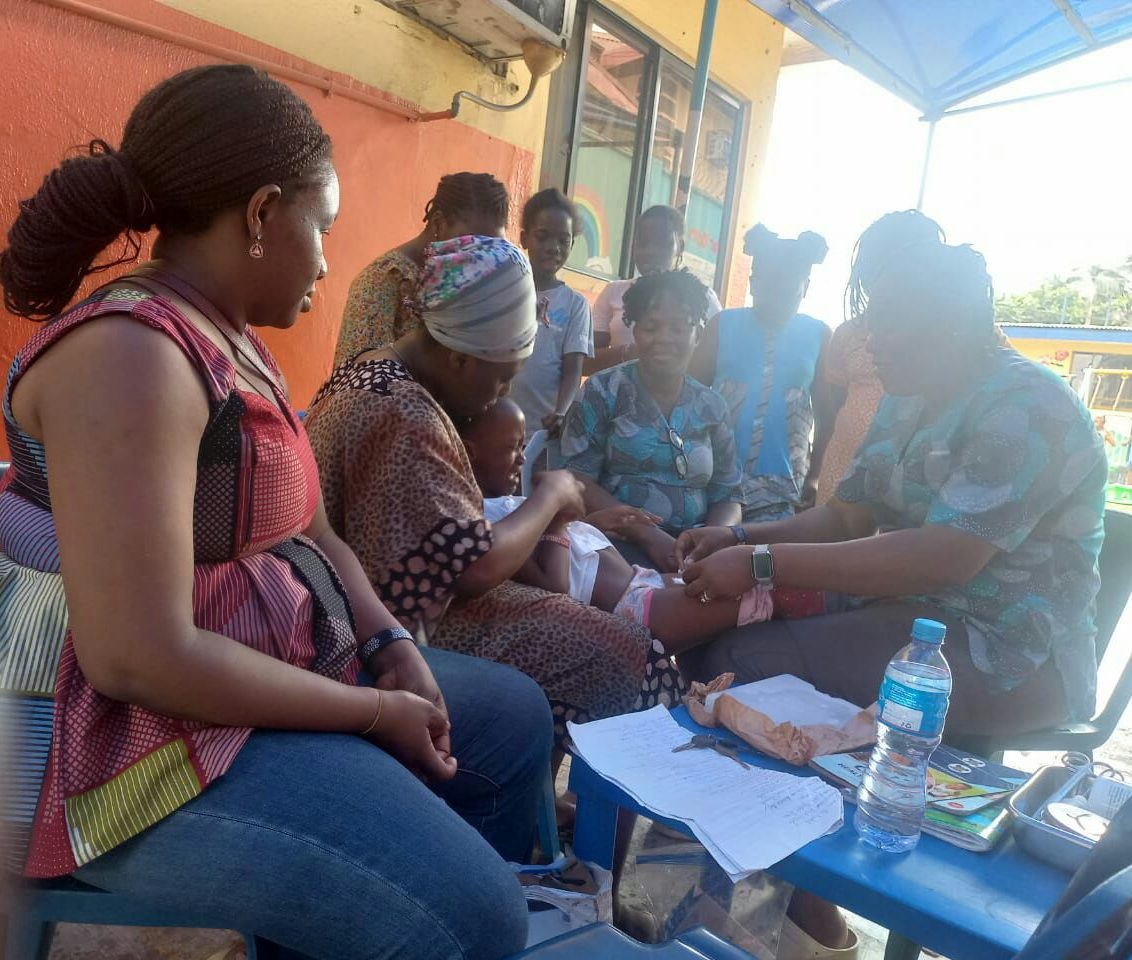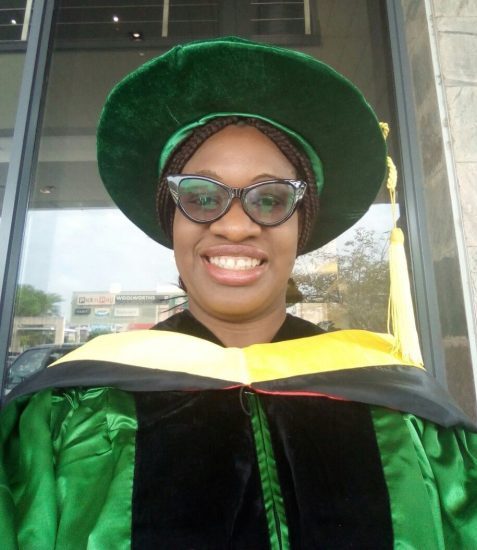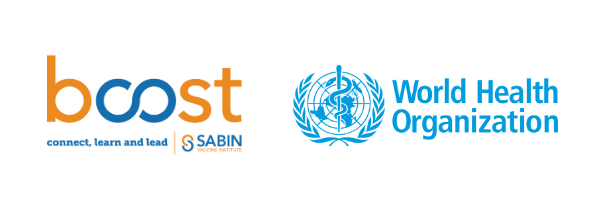Integrating Health Services into Education: School-Based Vaccination in Lagos, Nigeria
In May 2022, Sabin’s Boost Community and the World Health Organization (WHO) launched the first cohort of the "COVID-19 Recovery for Routine Immunization Programs Fellowship". The aim of this program was to strengthen the capacity of national and sub-national immunization professionals to plan and implement immunization programming during the COVID-19 recovery period, with the ultimate goal of reversing the declining rates of immunization coverage. After an intensive live engagement series, Fellows were tasked with drafting their own strategic proposal for implementation or case study for publication. This series of Bright Spots share Fellows' key learnings and takeaways from the program.
Adaora Odis’ passion for childhood immunization cannot be contained. Enthusiastically she said, “Each time I see children with their parents, [I say,] have you taken vaccines? Which one? For which vaccinations are you up to date?”
Adaora has worked as a public health strategist and Director with Norisbel Mega Corporate Limited Lagos since 2014, but by 2019, she decided: “I’m going to focus my courses, my research, everything I do now towards immunization.” She had been looking for a like-minded immunization community when she discovered the Boost Community in February 2022. Since joining, she said, “Boost has kept me so busy, I’m so grateful for it.”
Through Boost, Adaora learned about the 2022 COVID-19 Recovery for Routine Immunization Programs Fellowship, offered by the Sabin Vaccine Institute’s Boost Community and the World Health Organization. The Fellowship provided an opportunity to strengthen the capacity of immunization professionals, like Adaora, to recover and bolster immunization programs in their countries.
She was excited to join and said, “I knew that if I did it, I was going to make an impact.”

Battling Bottlenecks: Economic Woes & Parental Engagement
Adaora recognizes the difficulties that parents in Nigeria have in prioritizing vaccinations for their children. Many vaccines cost money in Nigeria and public hospitals often do not offer all the necessary vaccines. Additionally, Adaora said, “At [this] moment in Nigeria, the economy is so bad, pinching on everyone. So people would rather choose to go to work than take their child for immunization.” Or, she added, “[They say]‘I don’t have the time.’” Adaora believes opportunities for children to get vaccinated on weekends would increase uptake, but public hospitals are closed on weekends and private hospitals charge for their services.
With this in mind, Adaora brainstormed a more effective strategy: go to the unvaccinated children instead of trying to get parents to bring their children to health facilities. Building on learnings and input from the Fellowship, she designed a project focused on engaging private nursery and primary schools to facilitate catch-up vaccination in the Kosofe Local Government Area of Lagos State in Nigeria.
As part of this project, she developed a descriptive cross-sectional research study to assess vaccination status among these students. The approval process for her project was, at times, arduous: she waited long periods of time for approval by the Ministry of Health and Ministry of Education before finally being granted the opportunity to defend her project to an agency with the Ministry of Education. Upon approval by both Ministries and the schools she planned to work with, Adaora and her team got to work. With permission of the schools and parents, Adaora and her team reviewed each student’s vaccination history and then, with their parents’ consent, scheduled them for the appropriate vaccines at a health facility, in alignment with National Immunization Program guidelines. Adaora’s team trained data collectors on these guidelines to orient them on presentation and sensitization skills as well as how to review immunization cards to identify children with missed vaccination doses.
Recording and Sharing Lessons Learned
Adaora measured the impact of her project by the number of students whose immunization schedule was up-to-date as a result of the intervention. She also recorded every child who previously missed vaccination or was classified as zero-dose and who ultimately received all their necessary vaccines. Out of 135 immunization cards reviewed, the team successfully identified 90 children with missed vaccinations and 1 zero-dose child; each child then received catch-up immunization services. Vaccine demand generation increased as awareness of vaccine preventable diseases increased.
Final Results
135 immunization cards reviewed
91 children identified as missing vital vaccines
91 children received catch-up vaccination services
Despite the success of the project, some challenges arose along the way. One school would not release the immunization records of their students, and the team ultimately had to replace them with a different school that was willing to cooperate. An additional hurdle was the fact that in Lagos there is no vaccine mandate in order to be admitted into schools. This almost prevented her from obtaining ethical approval from Lagos University Teaching Hospital Health and Research Ethical Committee (LUTHHREC). She had to remove the word “mandatory” from the implementation research proposal before LUTHHREC gave ethical approval. Without this mandate, Adaora readjusted and developed informed consent papers and gave one to each child in the schools to have their parents sign. However there was pushback from parents. She said, “Sometimes when parents read it, they don’t even read the entire document. They just look at Covid-19, [and say] I don’t want my children to take Covid-19 vaccine, not knowing that we’re talking about routine vaccination. So we had a lot of challenges.”
In order to address these challenges, Adaora generated the power of storytelling to bring about positive change in vaccination uptake, a skill she learned through the Boost Community. She engaged and sensitized Parents Teacher Association members (PTAs) using storytelling to get their attention and convince them of the importance of vaccination. The team also engaged parents, especially fathers, with one-on-one coaching and counseling to encourage their engagement and inform them about vaccination schedules and immunization clinics. Additionally, using funding from the Fellowship, Adaora subsidized transportation for mothers bringing their children to be vaccinated, which was a successful incentive. These changes affected the willingness of parents to ensure that their children are properly immunized.
The Boost Community platform provided space where Fellows, like Adaora, could connect, ask questions, and share learnings. Adaora advises her colleagues to record everything that’s being done in project implementation, which she did through the Boost Community and her social media channels.
“Just have somewhere that you write every step that you’re taking so that others will see and learn because you’re not the only person doing this kind of thing in your country or in the world.” ~Adaora Odis

2022 Fellow & Contributor
This story was shared by Adaora Odis, a Public Health Strategist & Director at Norisbel Mega Corporate Limited Lagos. She has a Ph.D. in Public Health from the University of Central Nicaragua, an MSc in Public Health Medical Statistics from the University of Lagos, and a BSc in Statistics from Abia State University Uturu. She has published more than 8 research works in international journals, and most recently published her project findings in Texila International Journal of Public Health in June of 2023.


